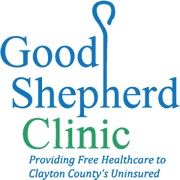Free medical clinics play a critical role in providing healthcare services to underserved communities. Despite advances in technology and medicine, there are still millions of people in the U.S. who do not have access to adequate healthcare due to a lack of financial resources or geographical barriers.
Free clinics offer a solution to this problem by providing essential medical services to those in need at no cost. Medical clinics such as The Good Shepherd Clinic provide accessible, affordable, and quality healthcare services to those in Clayton County who need it most. By improving access to healthcare services, reducing the financial burden of medical costs, and providing high-quality care, free medical clinics make a significant impact on the health and well-being of individuals in these communities.
The positive impact of free medical clinics extends beyond the individuals who receive care and extends to the healthcare system as a whole, by reducing the need for costly emergency room visits and improving overall health outcomes.
Free medical clinics provide several benefits to underserved communities including:
Improved Access to Healthcare Services
One of the key impacts of free medical clinics is improved access to healthcare services for individuals who would otherwise have limited options.
The National Association of Community Health Centers (NACHC) estimates that over 29 million people in the U.S. rely on community health centers, including free medical clinics, for their primary care needs. It is clear that free medical clinics such as The Good Shepherd Clinic play a vital role for individuals who may face barriers to accessing care such as poverty, limited transportation, or inadequate healthcare facilities.
By relying on community health centers for their primary care needs, individuals in underserved communities can receive the care they need to maintain good health.
Improved Health Outcomes
Early detection and treatment of illnesses can prevent the progression of diseases and improve health outcomes. Free medical clinics are essential in providing primary healthcare and laboratory services to underserved communities.
A study by the NACHC found that patients at community health centers were more likely to receive preventive services, such as flu shots and mammograms, compared to those who received care at other healthcare facilities.
By providing accessible and affordable preventive care, these centers help individuals to maintain good health and reduce their risk of developing chronic conditions. This improved access to preventive care and early treatment of illnesses may result in better health outcomes for individuals in underserved communities.
Cost Savings
Free medical clinics help to reduce the financial burden of healthcare costs on underserved communities while also providing high-quality care, working with specialty clinics for instance. A study published in the Journal of General Internal Medicine found that patients who received care at community health centers had lower hospitalization and emergency room costs compared to those who received care elsewhere. This cost savings is crucial, particularly for underserved communities where individuals are often faced with limited financial resources.
Additionally, by reducing the need for costly emergency room visits, free medical clinics can help to lower healthcare costs for individuals and the healthcare system as a whole.
Increased Patient Satisfaction
Free medical clinics are often staffed by dedicated healthcare professionals and volunteers who are passionate about helping underserved communities. This dedication to providing quality care is more likely to result in higher patient satisfaction compared to traditional healthcare facilities.
According to NACHC, 89% of patients at community health centers reported being satisfied with their care, compared to 81% of patients at other healthcare facilities. The provision of affordable and accessible care, as well as comprehensive services in a patient-centered environment, can further enhance patient satisfaction and community trust in the healthcare system.
Free medical clinics play a critical role in improving the health and well-being of underserved communities by providing primary care services to those who need it most. By providing accessible, affordable, and quality care, these clinics help to improve the health outcomes of individuals and reduce the burden of medical costs for both individuals and the healthcare system.
As healthcare continues to be an important issue in our society, the role of free medical clinics in addressing the needs of underserved communities will continue to be an important area of focus.
At The Good Shepherd Clinic, it is our mission to provide high-quality healthcare services to Clayton County residents and to ensure everyone has access to medical services when they need it most.


